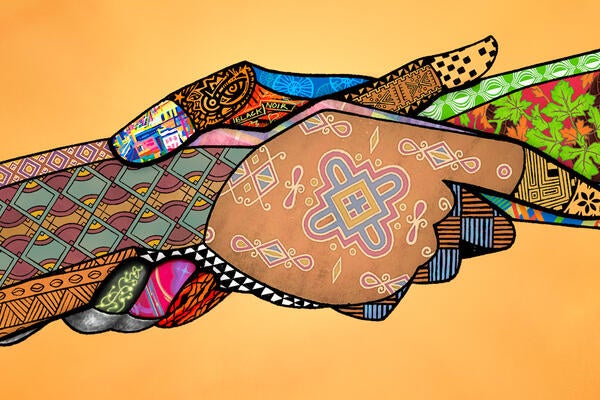
How racism affects health and well-being
Register to attend campus event on mental health and racism

Register to attend campus event on mental health and racism
By Nicole Bennett University RelationsIn an effort to deepen our understanding about racism, the University of Waterloo is hosting a panel discussion that explores the effects of racism on health and well-being.
“We value human diversity and endeavour to foster an equitable living and learning community at Waterloo,” says Director of Equity Mahejabeen Ebrahim. “We all have a role to play in eliminating racism from our communities so that it doesn’t continue to diminish us.”
All students, staff and faculty are welcome to register for the Panel on Racism and Mental Health. The event will be held on Tuesday January 17 at the Institute for Quantum Computing. Seating is limited and will be on a first-come-first-serve basis.
The panelists include:



University of Waterloo’s Equity Office will be hosting the event in collaboration with campus partners and Wilfrid Laurier University Diversity and Equity Office.
This unique discussion of racism in relation to its consequence on mental health and well-being presents new opportunities to address this important issue and its impact on members of the University community, added Ebrahim.

Read more
Upside Robotics secures new funding to accelerate the future of sustainable farming

Read more
Discover the meticulous work that uncovered Black stories on campus and preserved them for the future

Read more
A message from the President and Vice-Chancellor
The University of Waterloo acknowledges that much of our work takes place on the traditional territory of the Neutral, Anishinaabeg, and Haudenosaunee peoples. Our main campus is situated on the Haldimand Tract, the land granted to the Six Nations that includes six miles on each side of the Grand River. Our active work toward reconciliation takes place across our campuses through research, learning, teaching, and community building, and is co-ordinated within the Office of Indigenous Relations.